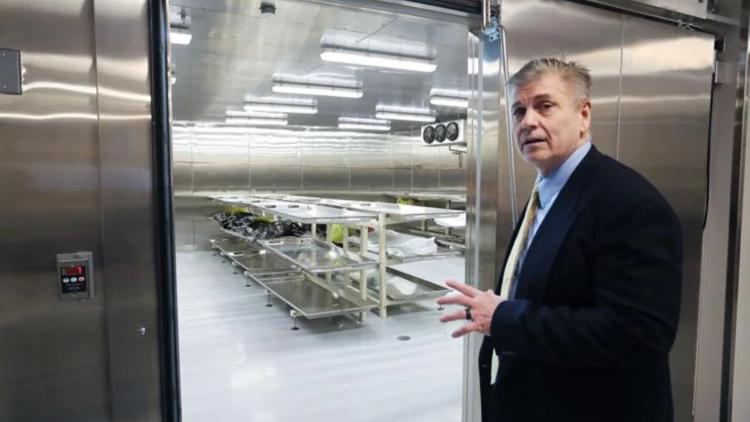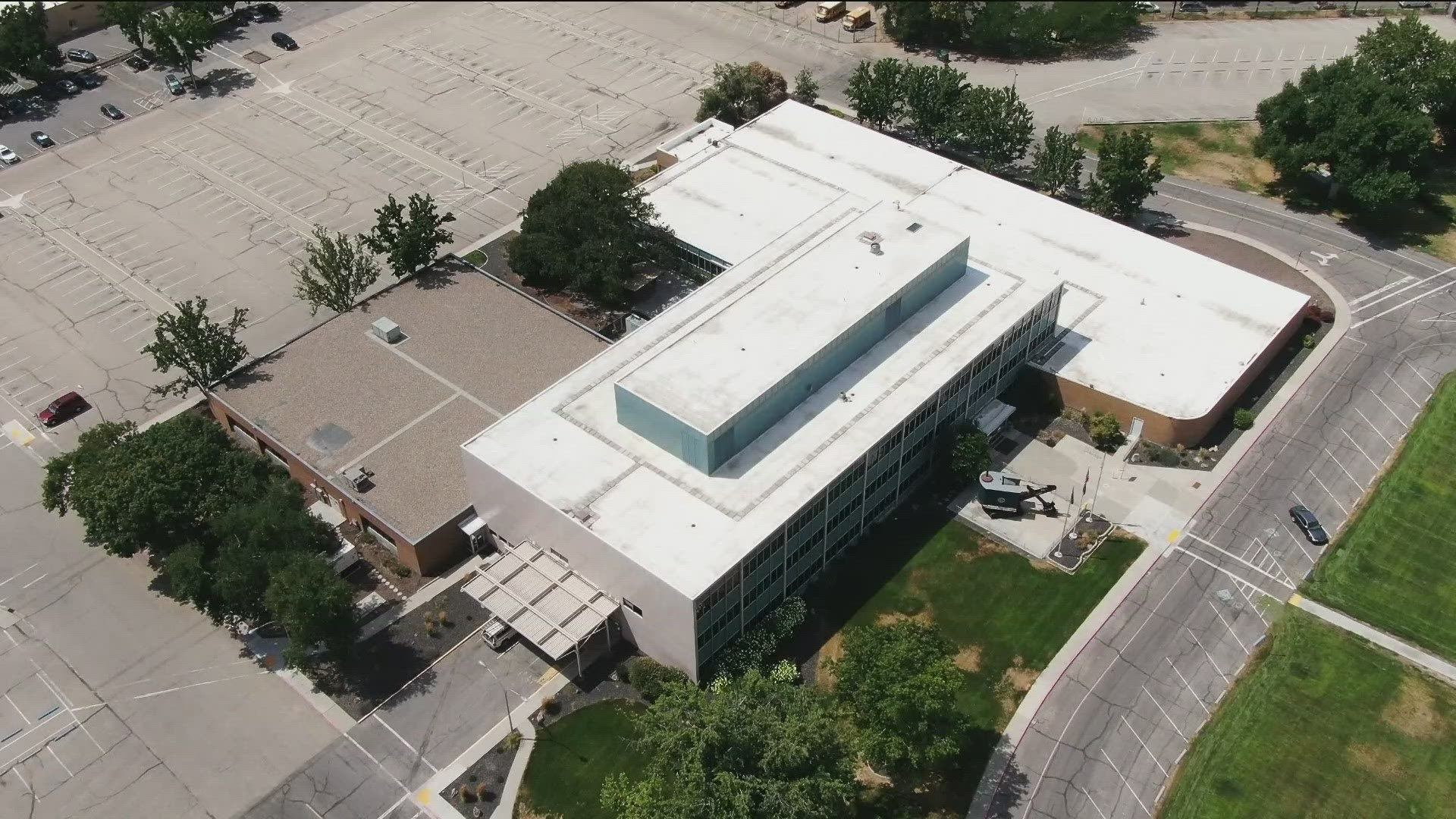BOISE, Idaho — This article originally appeared in The Idaho Press.
Half of the time when a child dies in Idaho, there’s no autopsy. In around 8% of homicides in the Gem State, there’s no autopsy — perhaps most infamously, in the case of Tammy Daybell.
And Idaho Code doesn’t require the coroner to be notified when a person dies in jail or police custody, from poisoning or drug overdoses, or for any death that could be a threat to public health, according to a recent report heard by the Joint Legislative Oversight Committee.
“I think this is one of the most eye-opening reports I’ve heard,” Sen. Melissa Wintrow, D-Boise, said during a February Joint Legislative Oversight Committee meeting. “I think every single page of your report is a policy recommendation.”
In many of these metrics, Idaho lags behind the rest of the nation, where almost 80% of child deaths are autopsied. In some areas, Idaho ranks last in the nation.
The issues arise from a lack of state guidance, no standardized guidelines and a lack of funding, among other factors.
Death investigation practices vary by county, and, in some, coroners rely on law enforcement to investigate deaths — rarely attending the scene of a death themselves.
Many coroners do not receive the continuing education or submit proof of the education required by state law. And there’s a shortage of forensic pathologists nationwide affecting the amount of work that can be done in Idaho.
The coroner system is a “vestige of an older era before the rise of modern medicine,” according to the report. Idaho’s coroner system was created in 1864, but switching to a medical examiner system is “not feasible,” the report concluded.
Medical examiners are appointed, not elected — as coroners are — and are required to have medical qualifications. County and district medical examiners have similar roles to county coroners.
“The coroner system right now in Idaho, it lacks a lot,” Ada County Chief Deputy Coroner Brett Harding said told the Idaho Press.

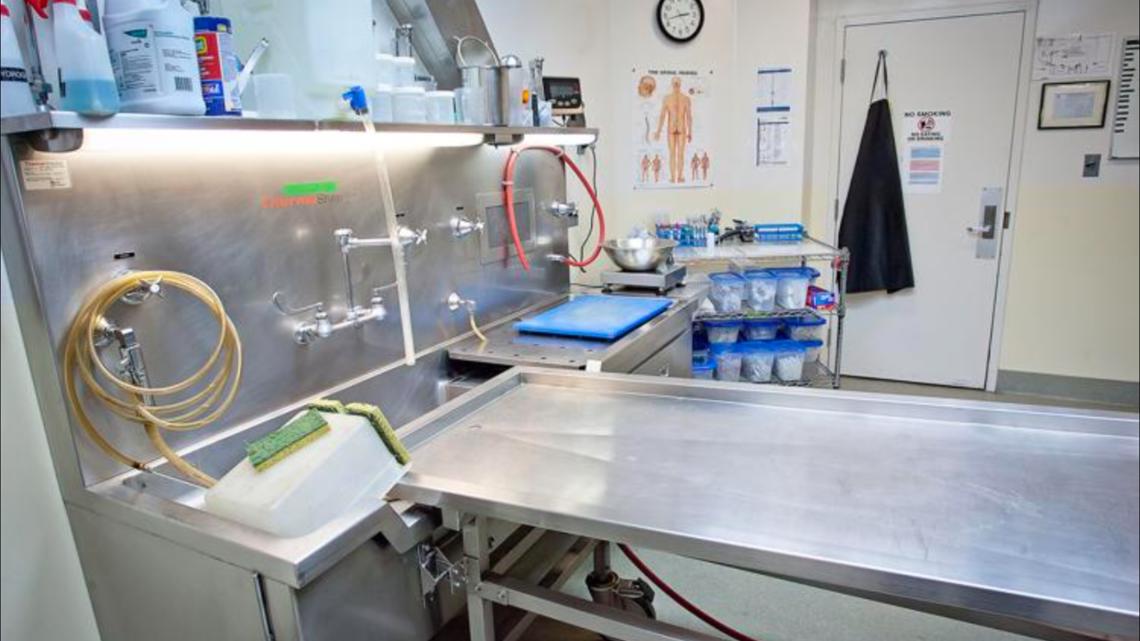
Not defining when autopsies need to be done can be dangerous, he said. Homicides could go unidentified or dangerous diseases could be present. In a situation with a suicide cluster, Harding said coroner’s offices can step in and alert the school districts and the public health department.
“The coroner’s office has a lot to do,” Harding said. “We’ve traditionally run pretty lean as an office because a lot of people don’t know what we do.”
TRYING TO KEEP UP
But the state’s problems have been an ongoing issue.
In 2000, a legislator proposed switching Idaho to a medical examiner system. The goal was to provide for continuing education, develop uniform protocols and define which deaths the coroner must investigate.
The minutes from HB 515 include investigative reports from the Idaho Falls Post Register showing that in Idaho, coroners often didn’t look hard for answers as to why children died. The problems: a lack of state laws requiring child death investigations, not enough money in coroners’ budgets, and a shortage of trained workers.
At the time, the Post Register called the coroner system “a relic, akin to a Model T trying to keep up with interstate traffic.”
“It’s not working in the late 20th century, it’s not going to work in the 21st century,” a prosecutor told the Post Register.
The bill died in the Senate that year.
WHAT CORONERS FACE
As it currently stands, Ada and Canyon counties are the only two in the state to conduct their own autopsies.

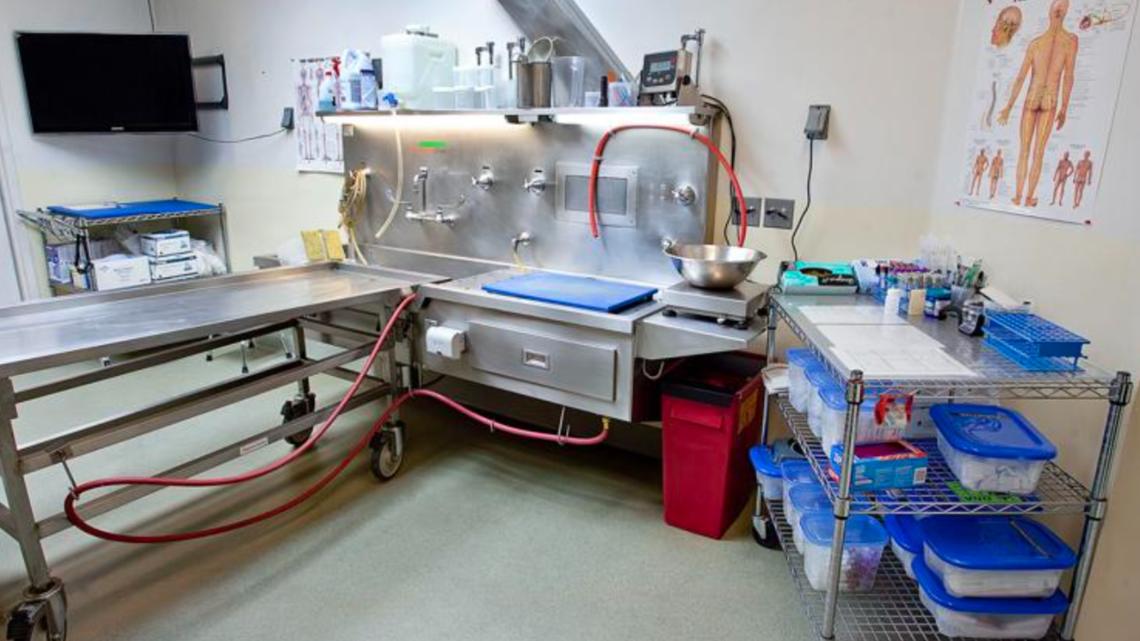
Ada County provides autopsies for 33 counties, while eight counties use Spokane County in Washington state. Owyhee County uses Canyon County.
Only two coroner offices in Idaho hold a nationally recognized accreditation, the report said — in Twin Falls and Ada counties. Ada County is the only one that employs forensic pathologists. Canyon County works with a clinical pathologist who also works with a local hospital system.
Forensic pathologists are doctors who specialize in determining the cause and manner of death, the report said.
Because of a national shortage in the position, the average salary for forensic pathologist jobs in Ada County is near $350,000.
The Eastern Idaho Forensic Pathology Center is in the works in Bannock County. It’s expected to serve 17 counties, but it is facing challenges with funding and hiring a full-time forensic pathologist, according to a Bannock County Public Information Officer.
The Bannock County Commissioners would also prefer to have the state take ownership of the facility once it’s done, the public information officer said.
Its estimated opening date is early fall 2025.
Coroner’s offices in Idaho were the least-funded county offices statewide, the Joint Legislative Oversight Committee report said. And often, coroners are among the lowest-paid county officials. Many are considered part-time, despite working 40 or more hours per week, the report said.
The median Idaho coroner salary in 2022 was $17,969.
“If I have a family, if I have bills to pay, and I’m also the coroner, I hate to see people put in the position of choosing between their obligations as the corner to keeping a roof over the head and food on the table because they have a job too that pays the bills,” Harding, the Ada County Chief Deputy Coroner, said.

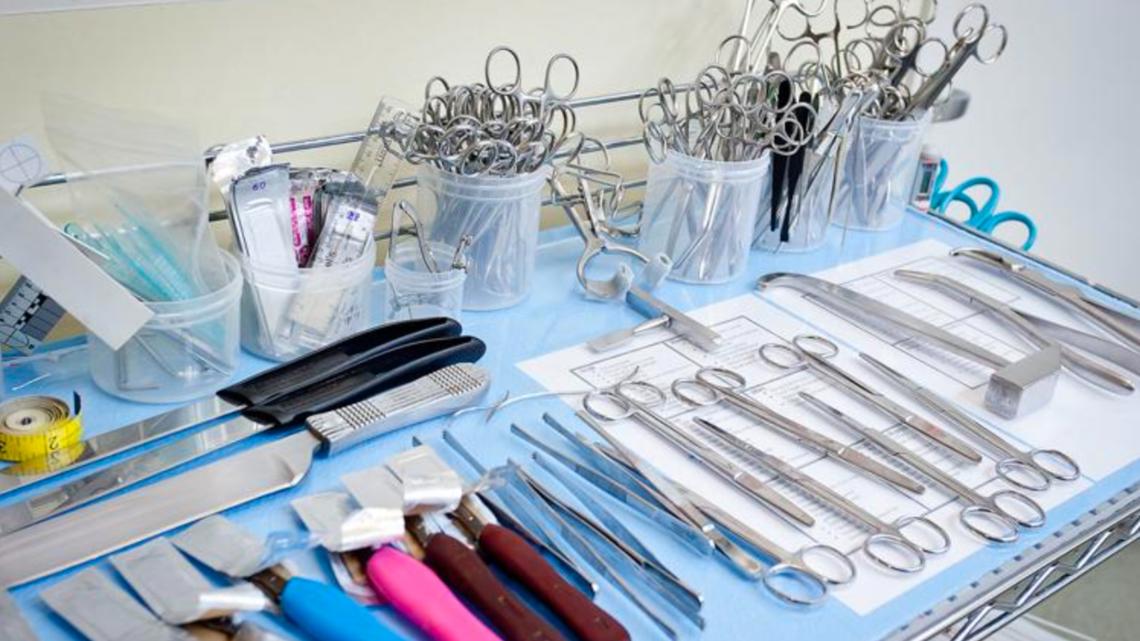
And not every county is as well-equipped as others. The report said coroners in some counties don’t have a cooler to store bodies, a vehicle to transport bodies or an office provided by the county.
And though continuing coroner education is required, many are not taking it because the requirement is not enforced. Idaho’s coroners are also not required to notify the state’s Child Fatality Review Team of child deaths.
“Even if coroners were determined to meet national standards for autopsy rates, several barriers prevent them from doing so,” the report said. “A significant increase in coroner spending would be necessary to conduct the recommended number of autopsies. In addition to funding, there are not enough forensic pathology labs or forensic pathologists to conduct autopsies.”
MOVING FORWARD
The report made several policy considerations, including allowing death certificate revenues to go toward the cost of applying for accreditation, outlining coroners’ responsibilities and jurisdictions, and removing outdated code sections. The report also suggested that the Legislature make information from a coroner’s death investigation confidential.
Also, the report explored the idea of classifying coroners as first responders, so coroners could get access to naloxone and workers compensation for mental injuries.
Tokasha Huskey, Canyon County Chief Deputy Coroner, said that coroners are not seen for everything they do. Coroners are alongside law enforcement and see “extensive trauma,” but can’t set their shifts up like first responder shifts to avoid burnout.
Huskey said the Canyon County Coroner’s Office also does death notifications in-person to the families of people who die. She said it takes a certain kind of person to play multiple roles — doing the scientific approach to a death and consoling family members.
“People view us as just essentially body snatchers,” Huskey said. “We’re gathering scene evidence, body evidence, we’re doing the full investigation … we are trained to compartmentalize.”
Many coroners interviewed for the report “discussed the mental stress of the job, such as exposure to traumatic deaths,” — a known contributor to PTSD.
“Over time you learn to separate yourself,” Canyon County Coroner Jennifer Crawford said. “If you couldn’t separate the two, you couldn’t do this, because some of them are really, really bad.”
Ultimately, Rep. Steve Berch, D-Boise, said the information is incredibly useful but has no value unless the Legislature could act on it.
This article originally appeared in the Idaho Press, read more on IdahoPress.com.
Watch more Local News:
See the latest news from around the Treasure Valley and the Gem State in our YouTube playlist:
HERE ARE MORE WAYS TO GET NEWS FROM KTVB:
Download the KTVB News Mobile App
Apple iOS: Click here to download
Google Play: Click here to download
Watch news reports for FREE on YouTube: KTVB YouTube channel
Stream Live for FREE on ROKU: Add the channel from the ROKU store or by searching 'KTVB'.
Stream Live for FREE on FIRE TV: Search ‘KTVB’ and click ‘Get’ to download.


